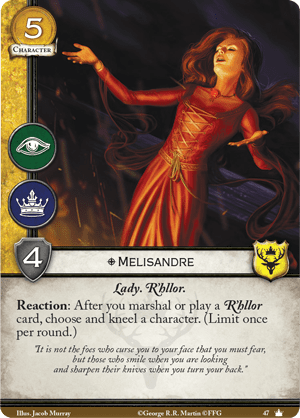1 minute ago, InquisitorM said:Yes, it requires someone to move to the room that I am in. If I am the one moving, I am quantifiably not in the room I'm moving to . Again, the ability doesn't separate moving from being in the room. I do not believe the 'but you are in the room as soon as you move' argument is valid because the ability never asks where the Ide Trader is. It only sets a trigger condition. hence why Nate's explanation is unsatisfactory because it does not explain why being in the conflict after it has moved is relevant. This is what I've been asking for that no-one seems able to offer an explanation for. That he is in the room (conflict, whatever) when he moves is not in question. That much is undeniable. I just want to know why it matters.
So far I have consulted with another three people today, and none of them can understand how this ruling makes sense either. Given the nature of in-groups and such, that means very little in and of itself, but it does show that I'm certainly not the only one struggling to understand how it makes sense.
Again - mechanically the move is past tense. It isn't asking if a character "is moving to" the conflict where Ide Trader was already participating, it is asking "if they moved to.. where Ide Trader is" Moved is past tense, where the trader "is" is present tense. There is no in-transit state where you can say a character "is moving" where you could react to it while the Trader is not present. There is also no qualifier adding that the Trader must be there prior to the move. It is a binary state of "not moved" where the reaction doesn't know and doesn't care, and then "has moved" at which point the character is fully moved and present, and by rules also participating, thus if Ide Trader moves it is both moved and participating at the same moment qualifying both aspects of the trigger.
